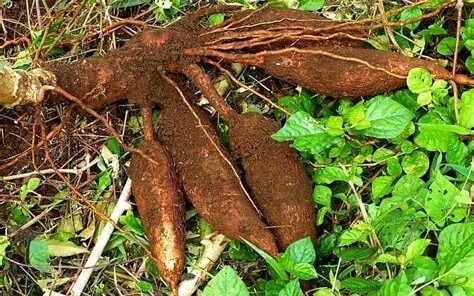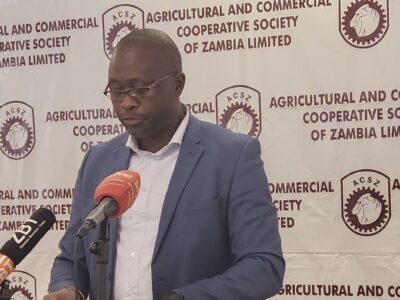A cassava market assessment by the Zambia Monitor on the Copperbelt reveals a serious shortage of cassava which residents turn to when mealie meal products are in short supply.
Some traders from the Democratic Republic of Congo (DRC), Burundi and Kenya are working with farmers in Luapula, the major producer of cassava, and ‘mopping up everything’ they are producing, thereby completely cutting supply to the Copperbelt.
A check in Kitwe, Mufulira, Chingola and Chililabombwe found empty storage facilities that used to stock the commodity for resale.
The short supply has also been attributed to an outbreak of a strange virus that turns the leaves of cassava yellowish and in the end wilts while causing rotting tubers.
“The food security in the country is compromised, people used to rely on cassava as an option in times like this when the country is facing serious mealie meal shortages, our depot is empty, people from Kenya, Burundi and the DRC are buying direct from farmers in Luapula and Northern provinces, so we are cut off, no supply,” Ruth Nyondo a depot owner in Chililabombwe said.
Nyondo said in an interview on Sunday that the outbreak of the strange virus that is attacking tubers and leaves has resulted in the short supply of the alternative staple food.
Read more : Millers reject maize imports, fear move could affect local production, distort prices
She said as the government clamped down on illegal mealie meal exporters, there was a need to include cassava on the list of contrabands for the country to be food secure.
Kitwe’s Jones Kambafwile who also used to deal in the commodity said the government should promote the growing of cassava because it was becoming a ‘hot cake’.
“Disease control should be of paramount importance, and I think the outbreak of cassava diseases is also contributing to this shortage,” Kambafwile stated in a separate interview.
WARNING! All rights reserved. This material, and other digital content on this website, may not be reproduced, published, broadcast, rewritten or redistributed in whole or in part without prior express permission from ZAMBIA MONITOR.












Comments